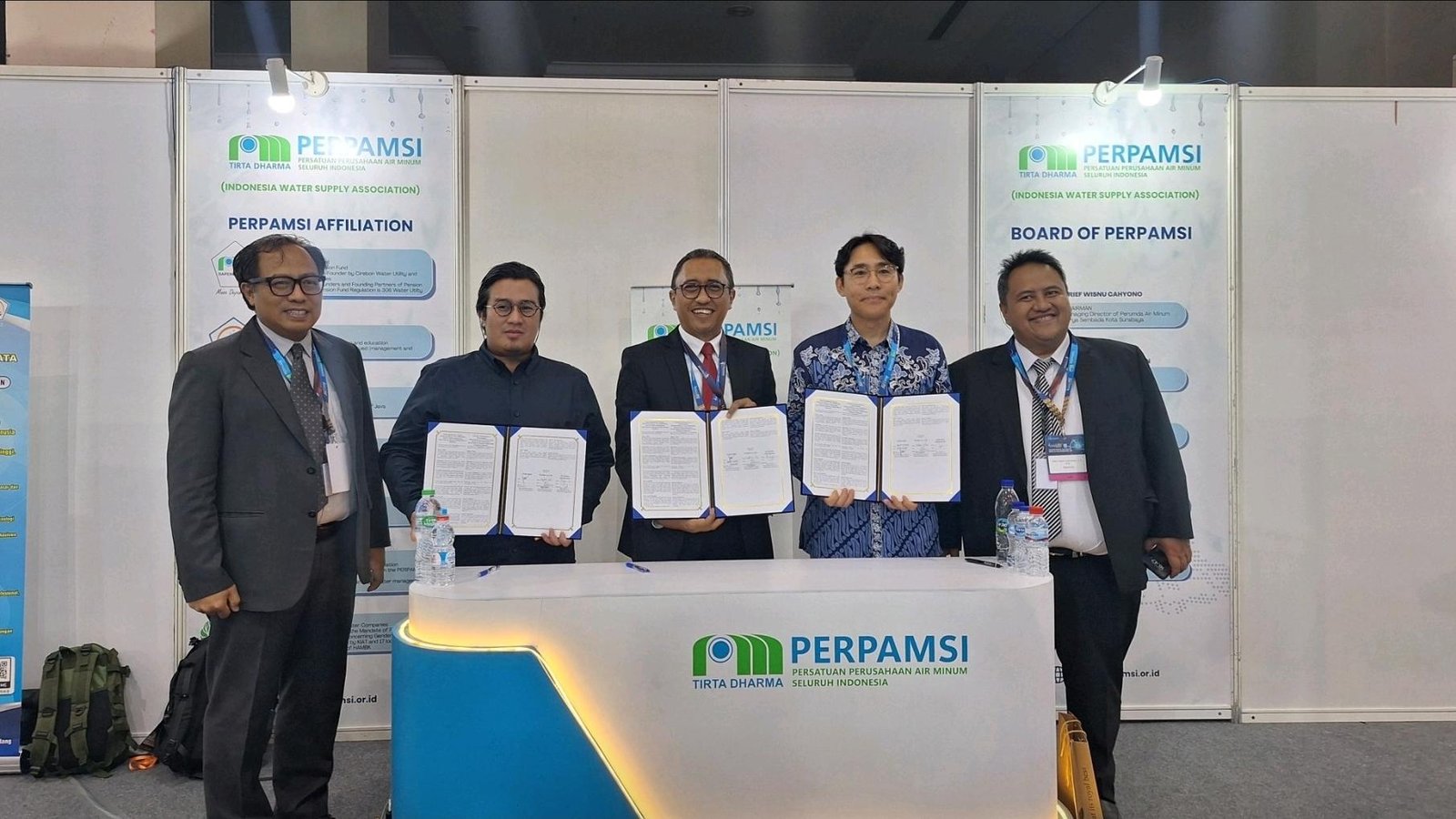
SUPRA, PERPAMSI, and WI.Plat Launch Indonesia’s First National NRW Training Center
SUPRA, PERPAMSI, and WI.Plat Co., Ltd., Launch Indonesia’s First National NRW Training Center In an era where the resilience of water infrastructure increasingly determines the pace of economic and social stability, the issue of Non-Revenue Water (NRW) continues to represent one of the most persistent structural inefficiencies within Indonesia’s water utility sector. Against this backdrop, the 2025 Indonesia Water and Wastewater Expo and Forum (IWWEF) served as a critical platform for a transformative initiative, one that reframes how the nation approaches capacity building and systemic leakage reduction. On the sidelines of the national forum, a trilateral agreement was formalized between the Indonesian Water Supply Association (PERPAMSI), South Korea’s WI.Plat Co., Ltd., and Indonesia-based PT SUPRA Internasional Indonesia. The signing marks the establishment of the country’s first National Training and Certification Center dedicated to NRW reduction, a move widely seen as catalytic in shifting the national narrative from ad-hoc interventions to structured competency pipelines. The implications of this center are far-reaching. Rather than position water loss merely as a technical issue, the partners recognize NRW as symptomatic of institutional fragmentation, inconsistent technical training, and misaligned performance metrics across water utilities. Indonesia’s highly varied geographical, hydrological, and operational conditions have long rendered one-size-fits-all solutions obsolete. This new platform, designed to deliver standardization across a decentralized system, addresses that gap through a coordinated, evidence-based model of human capital investment. The collaboration brings together distinct strengths. PERPAMSI’s national utility network offers deep insight into operational gaps and regional disparities. WI.Plat contributes advanced diagnostic and monitoring technologies, including AI-enabled data platforms and field analytics. Meanwhile, SUPRA, long active in institutional capacity development and technology adaptation, provides the strategic architecture to translate these components into scalable, outcome-oriented learning pathways. Set to be rolled out as part of the Inclusive Business Solution (IBS) program supported by the Korea International Cooperation Agency (KOICA), the center will offer multi-level certification tracks targeting utility engineers, technicians, planners, and decision-makers. The curriculum spans early leak detection, district metered area (DMA) optimization, pressure management, and digital system integration domains critical not only for NRW but for overall system efficiency. Importantly, this center is envisioned as a living laboratory where best practices can be localized, tested, and disseminated. Field-based modules, combined with case learning from domestic and international contexts, aim to close the long-standing gap between policy ambitions and operational realities. The goal is not simply to reduce water loss, but to equip the sector with the mindset and methods to proactively manage complex, dynamic infrastructure systems under climate and demographic stressors. While NRW has often been treated as a technical issue to be solved through equipment procurement or short-term audits, the center reframes it as a challenge of professionalization. In a sector where resource constraints are matched only by accountability pressures, the ability to certify competence, rather than just purchase technology—becomes central to long-term service reliability and public trust. Throughout IWWEF 2025, the initiative drew wide interest from national and regional stakeholders, signaling a growing consensus around the need for nationally coordinated but locally adaptive solutions. As water utilities face mounting pressure to deliver on Sustainable Development Goal 6, universal access to safe water, many are beginning to view structured knowledge infrastructure as equally critical as physical infrastructure. Rather than frame the initiative as a breakthrough, the parties involved have emphasized continuity: this is part of a longer-term strategy to modernize Indonesia’s water governance, anchored in practical innovation and cross-border partnerships. As the sector matures, demand is likely to grow not only for certified skills but for institutional models that can align technology, people, and performance metrics into coherent systems. The NRW Training and Certification Center, situated at the intersection of policy, technology, and education, may well prove to be one of the most enduring legacies of IWWEF 2025 because it recognizes that solving complex water challenges requires more than just tools. It requires institutions capable of learning, adapting, and leading from within.
Share:
If you face challenges in water, waste, or energy, whether it is system reliability, regulatory compliance, efficiency, or cost control, SUPRA is here to support you. When you connect with us, our experts will have a detailed discussion to understand your specific needs and determine which phase of the full-lifecycle delivery model fits your project best.
